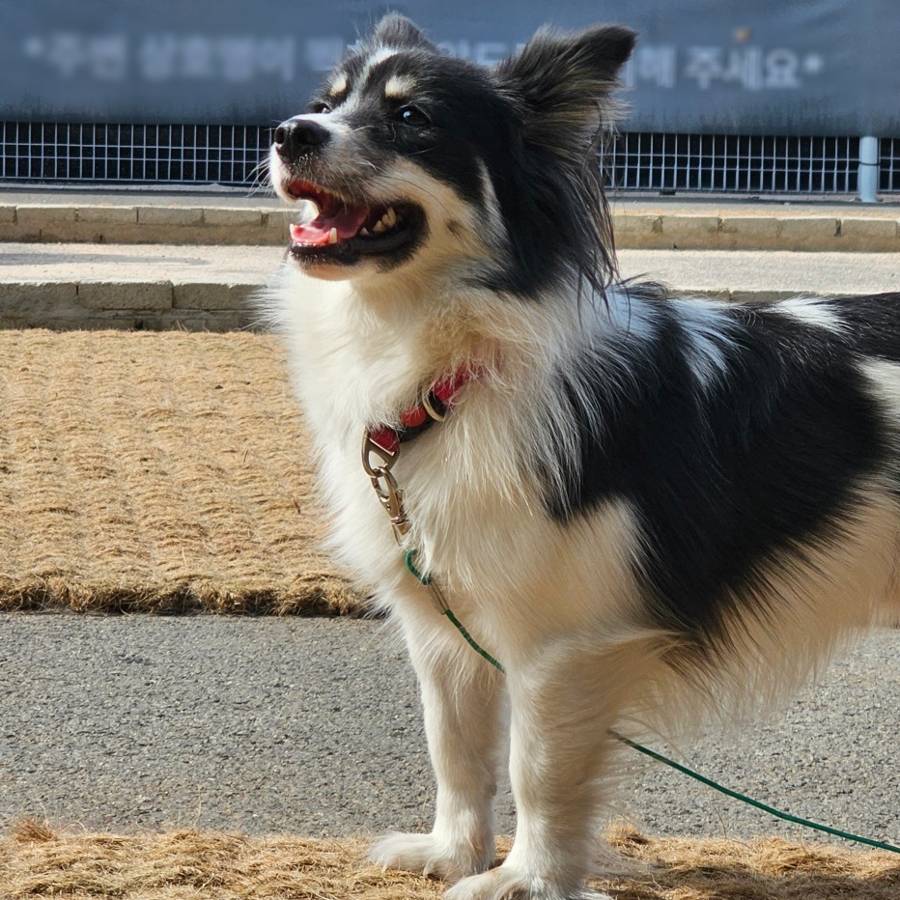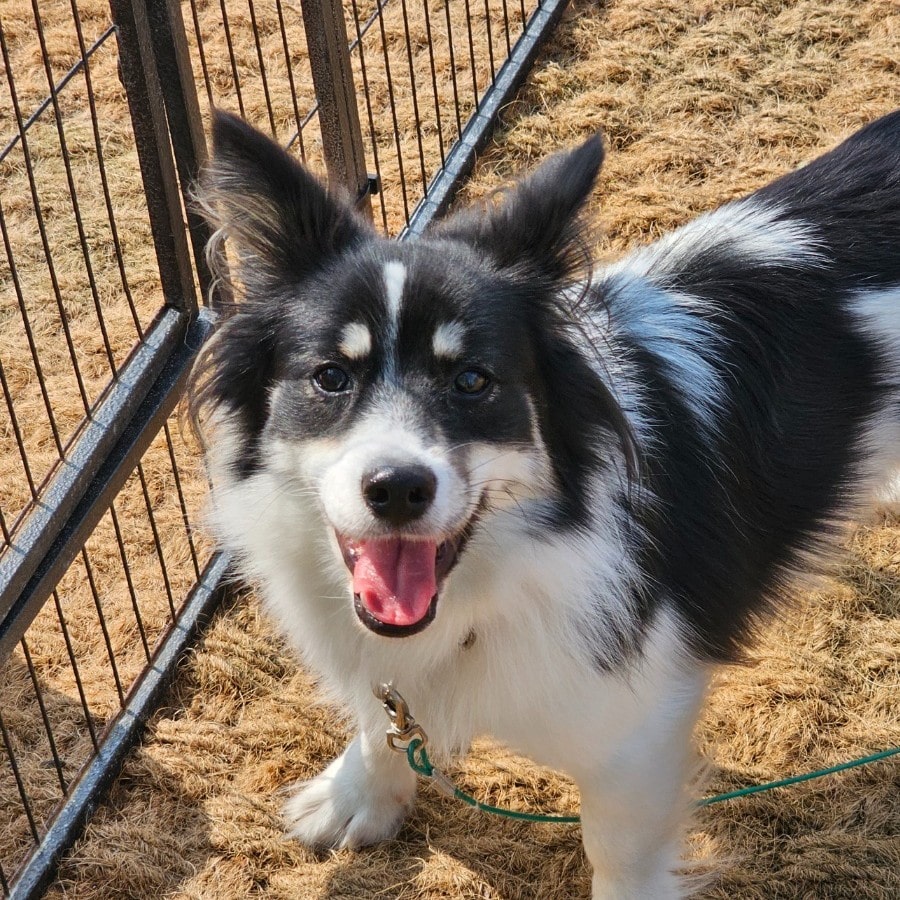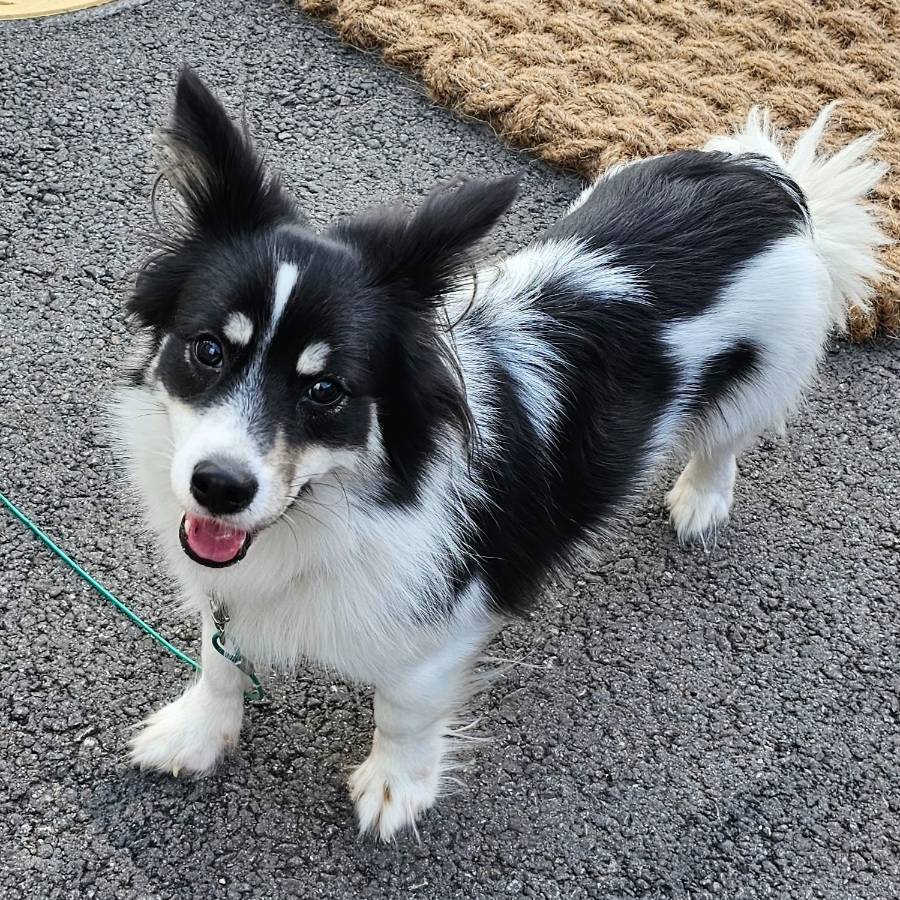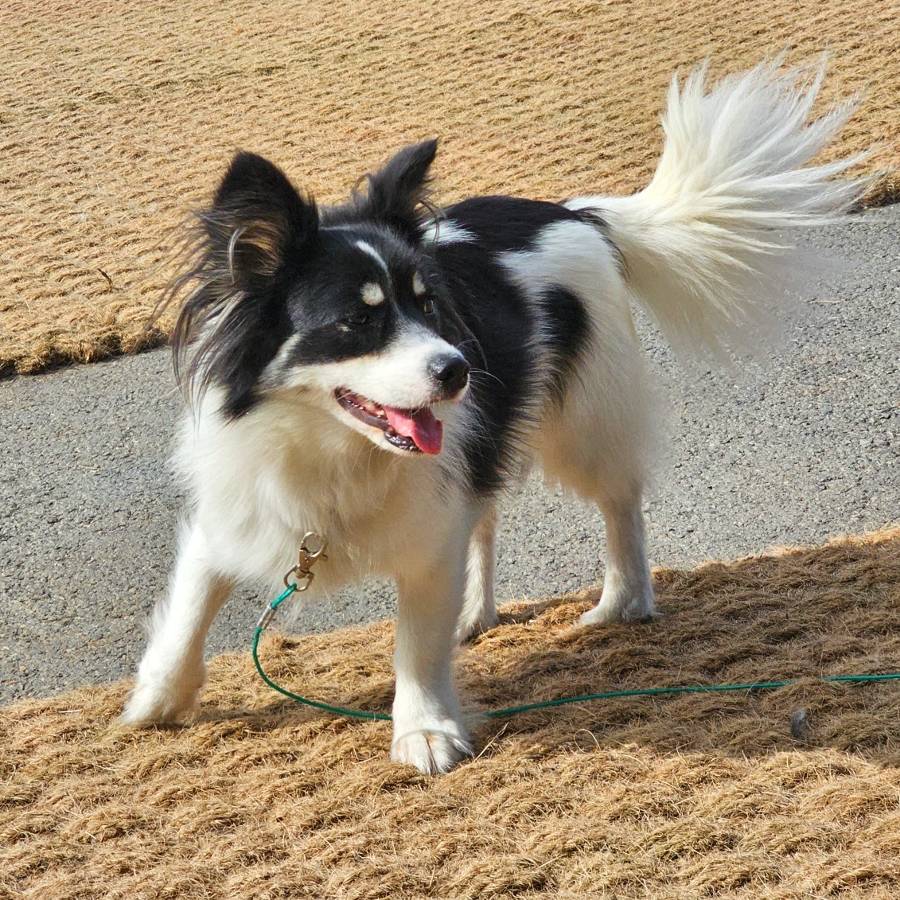| Name | Tug |
| Gender | Male |
| Weight | Small (8.4kg) |
| Date of Birth | February 28, 2022 |
| Breed | Mixed |
| Spayed/Neutered | O |
| Vaccinations | Complete |
| Rescue Location | #NeglectedDogsInAShed |
| Characteristics | Playful, energetic, cautious |
| Training | Outdoor potty-trained, kennel-trained |
| Likes | Treats, dog playground, toys |
| Dislikes | Loud sounds, sudden movements and touch, new environments |
| Possessiveness | |

Rescue story
WEACT received a report that dogs were being neglected in a shed in Mungyeong. The previous owner was ignorant of the importance of sterilization and failed to provide proper care. Due to uncontrolled breeding, there was overpopulation. The dogs were standing in their own feces, barely surviving on contaminated water and food. It took three separate trips to rescue a total of 48 dogs, and #weact_tug was one of the survivors to finally take a step outside the dreadful shed. Personality "I am a loyal dog who values loyalty!” Tug values his friends a lot. When meeting a new friend, he may initially feel awkward and remain calm, but this phase is short-lived! Once a close bond is formed, he enjoys sharing treats, going on picnics, and playing with toys together. With his boundless energy, Tug also loves running across expansive fields with his friends. He cherishes every moment spent in their company. Sporting attractive white eyebrows on his captivating black face, he captures people's attention like a celebrity. While you may be tempted to capture close-up photos, it’s important to consider that too much attention at once might overwhelm him. Please give him sufficient time to get to know you. Tug will show his appreciation for your thoughtfulness by gently extending a paw for a handshake and saying, "Thank you for liking me!" With humans Tug's behavior varies depending on how people initially interact with him. If a stranger approaches him kindly, he tries to get along without any issues. However, in his attempt to blend in too seamlessly, he may exhibit rude behavior. If initially ignored, Tug may either avoid or express hostility. Tug, who holds both curiosity and fear towards humans, adopted this approach as a survival mechanism in a past of abuse. So, by closely observing his behavior and engaging in appropriate communication, you can build a healthy relationship with him. With dogs Tug may initially feel awkward around new dog friends, but once he forms a close bond, he eagerly follows them and expresses his affection. In their company, he feels completely at ease and joyfully bounces around. However, if any friends approach him too eagerly, he may exhibit a warning gesture, indicating the need for some personal space. With cats Tug has never met a cat. Energy level With his boundless energy, Tug requires walks at least twice a day, in the morning and at night. However, he tends to have a desire to turn back if he encounters unfamiliar places during a walk. It would be beneficial to gradually expand the walking route so that he can become more accustomed to his new surroundings. Shedding/Barking Tug sheds and may bark when on guard or to protect his personal space, or when he wants something. Needs help with While Tug is accustomed to using both indoor and outdoor areas for relieving himself, his success rate with indoor potty pads is not very high. Consistent potty training is necessary to minimize accidents. When he’s with his favorite dog friends, he tends to chase after people’s heels or calves and may attempt to nip at them. This behavior stems from his reliance on his friends and his desire to protect them from people. Additionally, he may perceive touch as an attack towards himself and react by biting. It’s important to teach Tug that people will not harm his friends and that human touch does not pose a threat to him. Tug shows signs of tension when wearing a leash and often pulls in the direction he wants to go during walks. Teaching him leash manners during walks can help him fully enjoy them. When training Tug, establish rules and explain them slowly. Then, Tug will come to understand and gradually try to apply them to his life. Health specifics Tug has food allergies and is currently on a restricted diet with limited meat intake and a hypoallergenic diet. Additionally, he may experience discomfort during long-distance travels due to motion sickness. In such cases, please ensure that he is given enough time to rest and recover. Ideal family Tug is currently in the process of learning how to live with humans and embarking on a new chapter in his life. By giving him the support and encouragement to face new challenges, he will confidently overcome them. If you are meeting Tug indoors for the first time, please provide him with a designated space, such as a crate or a fenced area. This will help him feel secure and facilitate his adjustment to the new environment. Since Tug relies on the company of other dogs, a household with existing dogs may be suitable. However, if they approach him too eagerly, he may feel overwhelmed. It’s important to monitor their compatibility and provide appropriate training to ensure they get along well. Tug is waiting for a responsible, lifelong family that can establish rules to help him find stability amidst change and provide appropriate communication. More photos and videos https://www.instagram.com/tags/위액트터그 |
|






